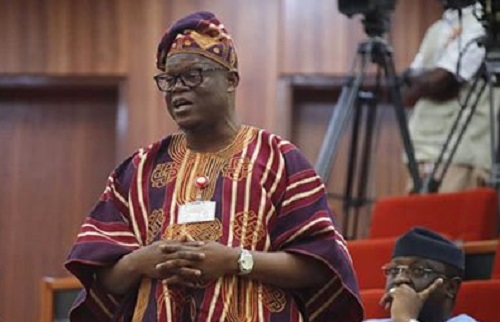President Muhammadu Buhari’s argument over the cost of direct primary in the electoral act amendment bill is “totally fallacious.”
Spokesperson of the senate, Ajibola Basiru, disclosed this in an interview with Channels Television on Tuesday.
Buhari, on Tuesday, wrote the lawmakers explaining why he declined assent to the electoral bill transmitted to him on November 19.
Some of the contentious issues in the new bill are the compulsory direct primaries for all political parties and electronic transmission of election results, among others.
The president, however, rejected the bill on the grounds of insecurity and cost of conducting direct primaries, adding that the recommendation “violates the spirit of democracy.”
“For instance, the argument on the cost that had been raised by Mr president, with respect, is presumptuous and totally fallacious. There is nothing that is given that the primary election must be conducted on a ward basis; it could as well be conducted either on a quarterly basis or on a local government basis.
“As regards argument on smaller political parties, smaller political parties may decide to even organise their direct primary at the state level.
“On the issue of security, an extension of that argument will be that because we have security challenges, then we should not even hold the 2023 elections; this is if we want to use what logicians called reductio ad absurdum, that is reducing the argument to the level of absurdity.”
Senator Basiru, in the interview said the National Assembly can explore four options following the rejection of the bill.
He said the National Assembly can discard the bill like the eighth assembly, adjust the bill in line with the president’s argument, remove the provision of direct primary, or override the president.
The senate spokesperson said the option of discarding the bill in its entirety cannot be a “compelling reason” for the National Assembly, owing to the provisions in the proposed law.
“Those are the four options before the National Assembly. And I believe the National Assembly, at the fullest of time, will be able to take those options,” he said.
“It is very important to say that as members of the National Assembly, we are approaching this issue not out of any sense of egotism or any sense of power tussle with anybody.
“But we will consider it based on counter arguments that may be canvassed against whatever reasons the president had given,” he said.









